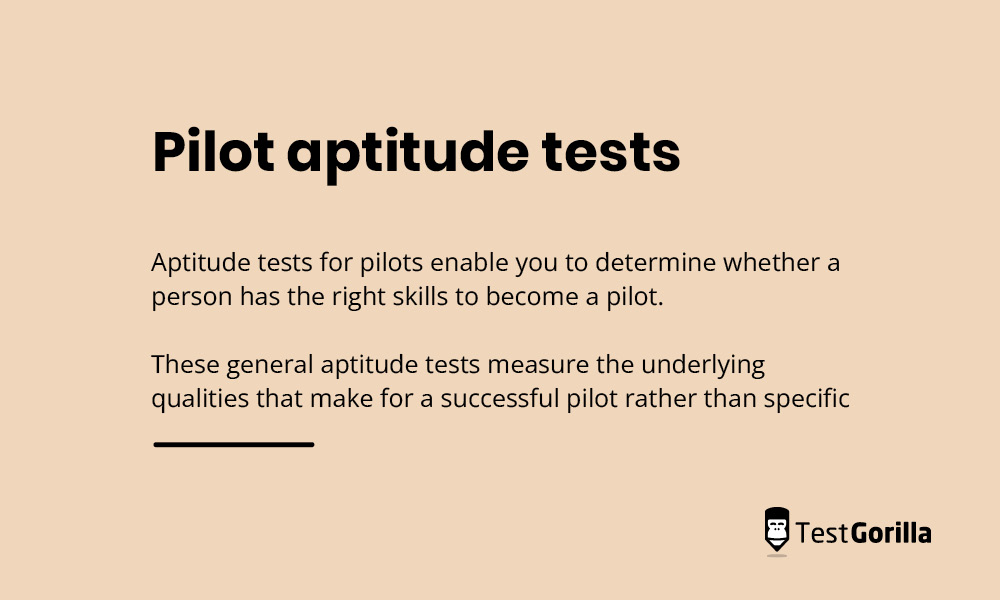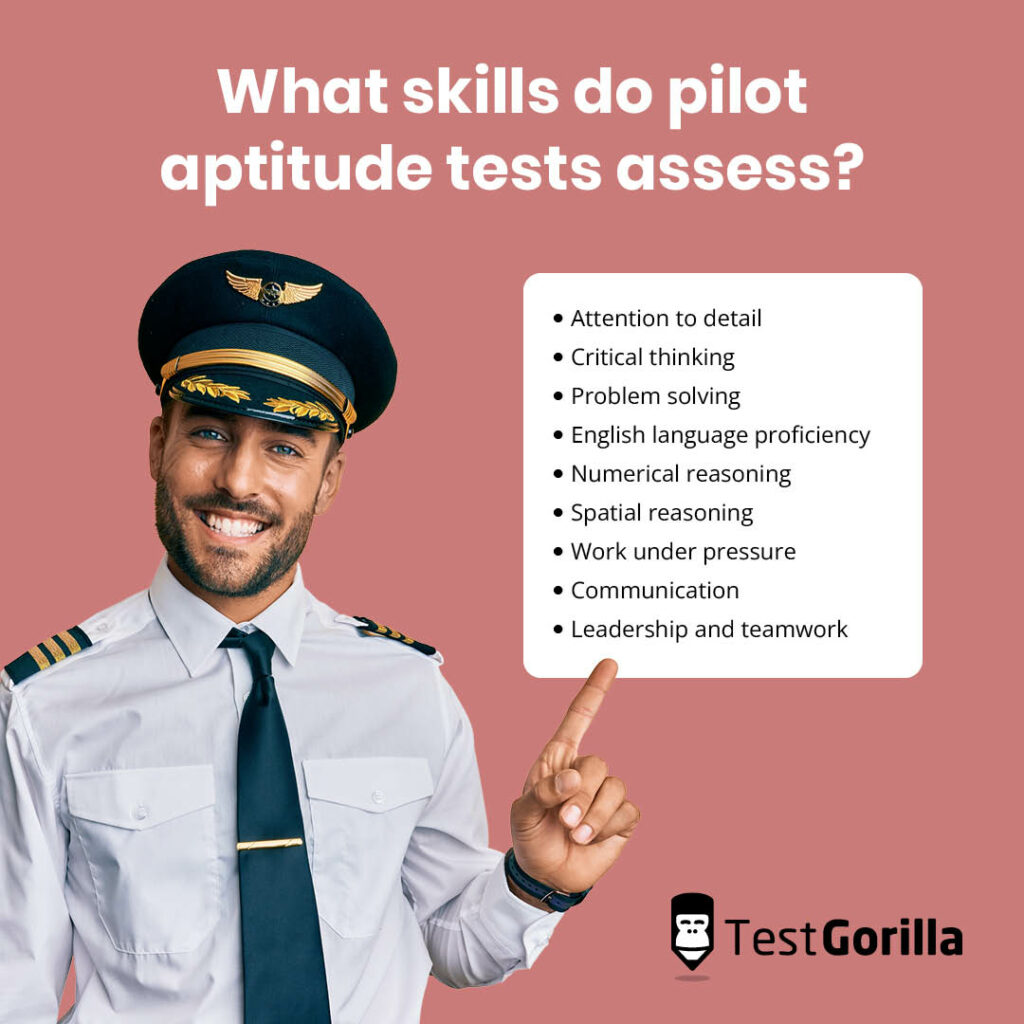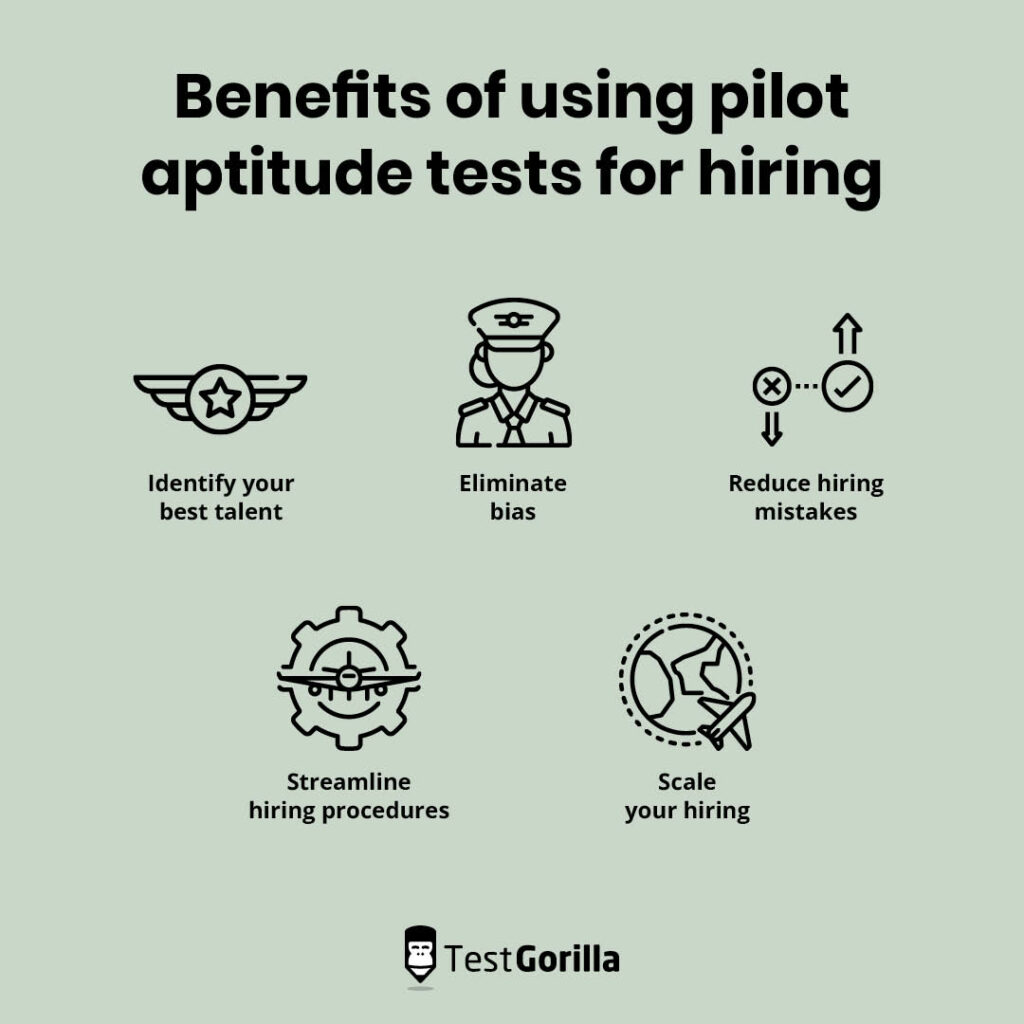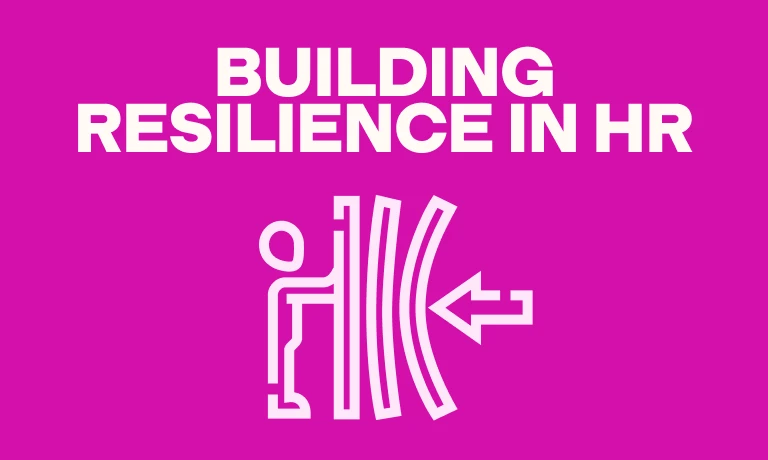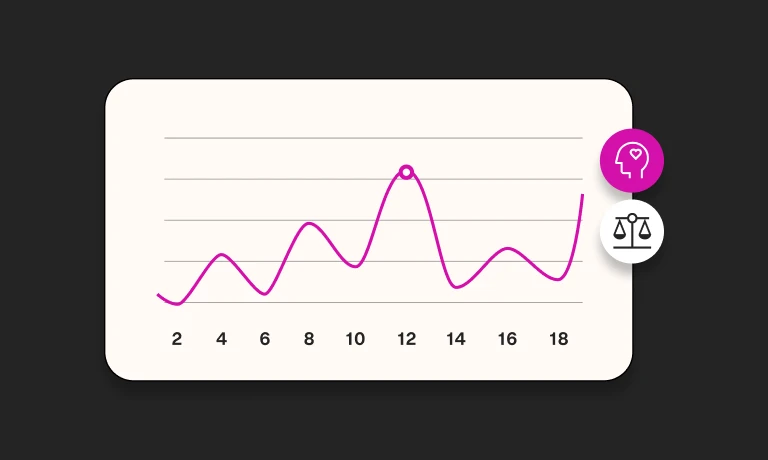The benefits of using pilot aptitude tests for hiring top talent
With a median pay of $134,630 a year[1], becoming a pilot is an attractive career choice for many – but the entry requirements are high and selection is tough.
Candidates hoping to get into a flight school and obtain a commercial pilot certificate need to have several key abilities, such as attention to detail, critical thinking, communication, leadership, and teamwork skills.
Airlines and flight schools often use pilot aptitude tests to select the best candidates for pilot training. That’s particularly important for airlines that sponsor the costs of flight school training and licensing, which total nearly $100,000 for commercial aircraft pilots.
So, what are pilot aptitude tests exactly and what kind of tests are there? How can airlines and flight schools make sure they’re selecting the best talent when assessing applicants?
Let’s find out.
What are pilot aptitude tests?
Aptitude tests for pilots enable employers and flight schools to determine whether a person has the right skills to become a pilot.
They’re general aptitude tests, rather than specialized tests on flight experience or knowledge, and help evaluate applicants’ cognitive skills, capacity to work under pressure, and ability to make the right decisions quickly.
Different airlines and flight schools might administer different aptitude tests for pilots, based on their exact requirements, selection criteria, and hiring procedures.
From the point of view of applicants, taking a series of pilot aptitude tests is usually the very first step of the road to becoming a pilot, which is a complex multi-step process. Candidates who score well and demonstrate the right skills and capacities during the selection process have a good chance of being sponsored by airlines for their pilot training.
What skills do pilot aptitude tests assess?
Pilot aptitude tests might assess a number of skills and each school or airline has its own procedures in place.
They might choose to use an online skills testing platform to perform an initial assessment of their candidates’ abilities, before proceeding to the next stage of recruitment; this lays the groundwork for using talent acquisition analytics in your recruitment process to correctly identify the best talent in your talent pool.
TestGorilla can be successfully used for this purpose; below, we’ll give you some examples of tests you could administer during this initial phase.
Here are some of the skills pilots need, which might be assessed during this initial stage, along with tests that companies and flight schools might use:
Attention to detail: Pilots need very strong attention to detail to take into account all elements of what they see and not overlook anything. An Attention-to-detail test might be helpful in assessing this skill.
Critical thinking: Critical thinking is key for being able to evaluate different points of view or pieces of information, analyze them, and come up with an adequate strategy quickly and efficiently. For this, a Critical-thinking test comes in handy.
Problem solving: Strong problem-solving skills enable pilots to quickly assess a situation, identify possible solutions and their advantages and drawbacks, and make the right choice. To assess this skill, you can use a Problem-solving test.
English language proficiency: Aviation being truly a global industry, proficiency in English is a must for pilots. You can use an English Language C1 test for this.
Numerical reasoning: Strong numerical reasoning skills show the ability to retain strong cognitive abilities under time constraints, which is essential for pilots. TestGorilla offers a Numerical-reasoning test to help you assess these skills.
Spatial reasoning: To pilot an airplane safely and effectively, pilots must have strong spatial reasoning skills and be able to analyze 2- and 3-dimensional objects and how they fit in space. A Spatial-reasoning test enables companies to test for this.
Work under pressure: The capacity to work under pressure is key for enabling pilots to stay concentrated and efficient even in the most stressful situations. To assess this skill, you can use a Numerical-reasoning and Time-management test in combination.
Memory: Memory is a crucial cognitive function that enables pilots to fly the aircraft, stay in contact with staff members and the ground crew, and be mindful of flight conditions simultaneously. There are different tests used to assess short-term memory.
Communication: Pilots need to communicate with lots of people daily and know how to do so successfully; strong communication skills are key for this. A Communication test enables recruiters to identify strong communicators.
Leadership and teamwork: Flying an airplane safely is a team effort, so pilots need to be strong leaders and good team players and know how to enable and maintain good cooperation between all team members. Leadership skills are easily assessed with a Leadership and people management test.
With TestGorilla, you can assess up to five skills in a single assessment. If you need to assess more skills at once, however, you could break down your selection process into two or more rounds.
The best insights on HR and recruitment, delivered to your inbox.
Biweekly updates. No spam. Unsubscribe any time.
What are the benefits of using pilot aptitude tests for hiring?
So, why is aptitude testing important in hiring?
For a number of reasons, really. Using pilot aptitude tests for evaluating potential candidates for pilot training helps airlines and flight schools evaluate applicants in a fair and objective manner and quickly identify those who are best suited for training.
Here are some ways aptitude tests for pilots can help you strengthen your hiring process:
Identify your best talent: Skills testing helps you figure out who your strongest applicants are and only invite them to the next stage of recruitment.
Eliminate bias: Being able to objectively measure cognitive abilities helps you eliminate unconscious biases and hiring discrimination.
Reduce hiring mistakes: Hiring mistakes can be very costly. When the choice to sponsor someone’s pilot training depends on the data you have during recruitment, you must make sure your data is accurate. Pilot aptitude testing helps with that.
Streamline hiring procedures: When you have the right evaluation tools, hiring doesn’t need to be a complex, drawn-out process. Automated skills tests enable you to move fast and be agile in your recruitment.
Scale your hiring: Regardless of whether you have 10, 100, or 1000 applicants, asking them to complete a skills assessment takes the same effort and amount of time, making skill-testing platforms ideal if you want to hire at scale.
All in all, skills testing is among the best ways to improve your selection process and make it faster, easier, and more objective.
Find the best talent with the right selection of pilot aptitude tests
Deciding to sponsor someone’s pilot training and certification is a big engagement that companies need to make carefully.
And indeed, becoming a commercial pilot is a multi-step process that takes time, effort, and dedication – so it’s only logical that airline companies want to make sure they’re selecting the most capable applicants who will be able to complete it.
Aptitude tests for pilots help them assess key skills, like attention to detail, problem solving, or even motivation, and make a fair and objective choice about whether to retain a candidate.
The right skill-testing platform can be an invaluable tool for the selection process and help you make the right decision confidently and with ease.
Source
https://www.bls.gov/ooh/transportation-and-material-moving/airline-and-commercial-pilots.htm, Airline and Commercial Pilots, accessed on December 24, 2022
Related posts
You've scrolled this far
Why not try TestGorilla for free, and see what happens when you put skills first.


